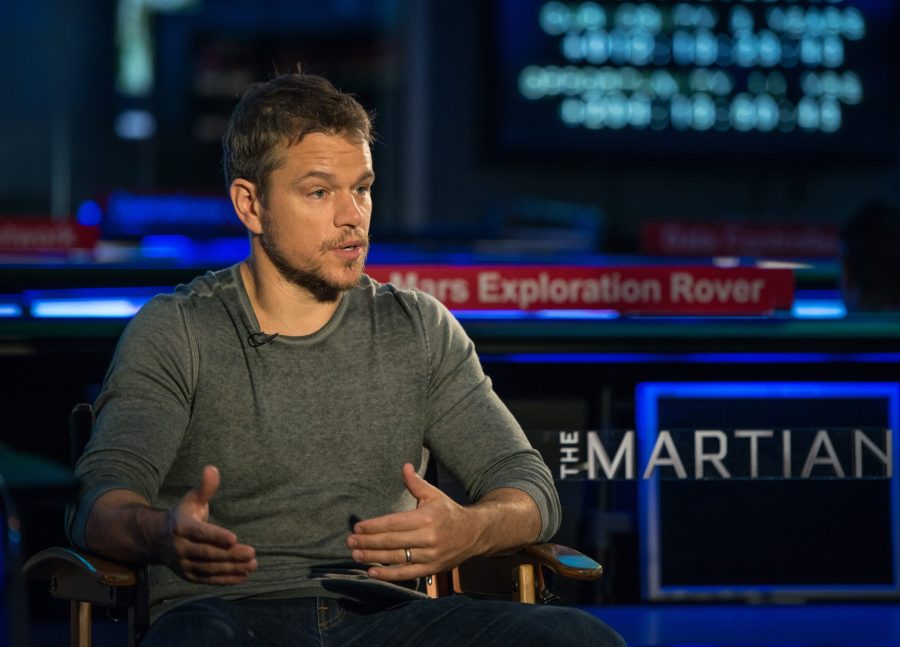“The Martian” is ‘something bigger than ourselves,’ as protagonist Mark Watney would say. This movie will remind audiences of a time when they were kids and wanted to be astronauts to be something bigger than themselves. This movie may just inspire the next generation of astronauts and scientists. These days movies about space tend to sell themselves because who doesn’t want to be reminded of how big the world is? Mars is a desert wasteland that doesn’t detract from its beauty. To Mark Watney, who gets stranded on Mars, it might not seem so beautiful. Mars might not be a fun place to be stuck on, but it was a pleasure to be ‘stuck’ in a theater watching someone else who is.
For a film that takes on space in all its expansive glory, it’s surprisingly intimate; not merely because Mark Watney is ‘stuck’ on a planet in a confined setting, but because of the use of the podcast which revealed an inner monologue of a man in solitude. These podcasts solve the problem of having no one to talk to, an answer to Watney’s solitude, and an answer for the audience that wants to know what he is thinking, just as much as the people of Earth within the fiction. The intimacy of the confined setting of the Mars lab provides a contrast to the impossibly large concept of space – solving the problem of space itself- being simultaneously too much and too little of space all at once. The film humbles space and tames the hard, empirical ideology of science.
Matt Damon shows how important it is to be human. Although Watney is in a grim situation being left behind on Mars by his crew, it doesn’t stop him from making the resolution, “I’m not going to die here.” Watching how he plans to keep true on that promise to himself and those waiting for him at home is what the film is about. It is not to say that it is a particularly easy promise to make, because no one can ever really make that promise, no matter what planet they reside on, which makes it all the more relatable. The gravity of such a situation is paralleled by adequate brevity, well-earned and well-placed expletives, but also humor. If the audience is really going to try to relate to being stranded on Mars, there are going to be a few choice words that try to get at what that really feels like.
Sci-fi films are quickly evolving into the class of high culture and “The Martian” falls in line with this trend. It implements witty dialogue and tests audiences with intriguingly challenging science, the kind of science some blockbuster films tend to shy away from. It is something new, and certainly welcome, for big budget films to actually try to teach its audience something; with any luck, it will be a trend that prevails so that cinema can get beyond the stereotype of being ‘low culture.’ That wit certainly does not come without the use of humor, a tool that has served other films well, like Marvel, for instance. And like a page straight out of Marvel’s “Guardians of the Galaxy,” “The Martian’s” soundtrack has its own role as a character in the film to aid the story or the comic relief.
However, unlike Marvel films, this is not a tale of one man trying to save the world; it’s about one world trying to save a man, whether it be Mars or Earth. Audiences has been given “Gravity” and “Interstellar” for comparison in the recent history of space epics, but “The Martian” makes Matt Damon the center of the story above all else and truly allows him to shine – maybe even forget that ponytail. Mark Watney is able to take an ugly situation and see the beauty of space despite the harsh reality he faces. So far, between “Saving Private Ryan,” “Interstellar,” and “The Martian,” America has already spent a lot of money trying to save Matt Damon. It’s definitely worth seeing this one guy who is very good at getting lost, because he must be doing something right.
Matt Damon in “The Martian”
October 4, 2015





















































